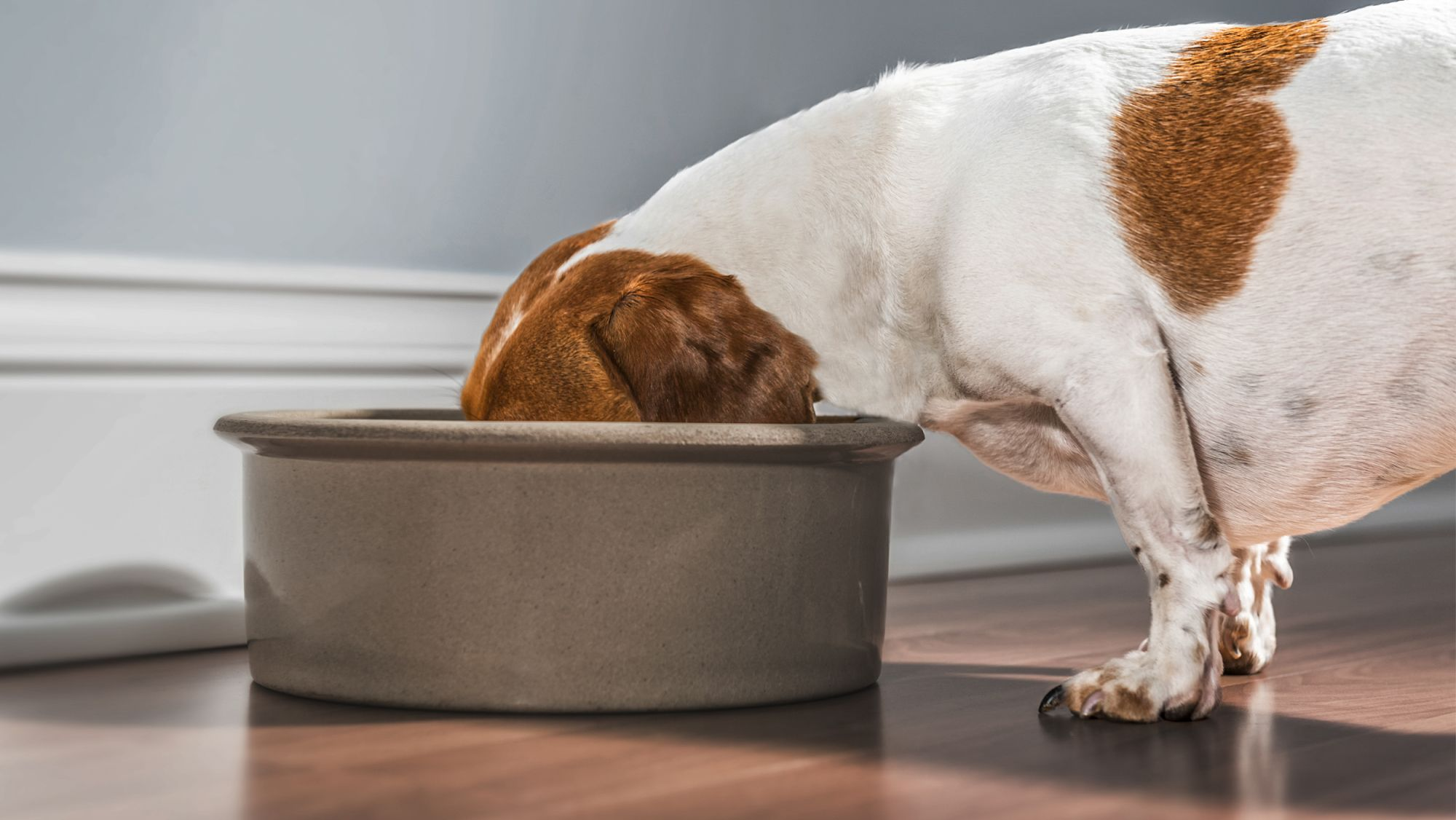How to prevent an upset stomach in your dog

Every dog may occasionally suffer from an upset stomach, but your dog’s age, breed, size and lifestyle can make it more prone to this issue than most. Luckily, there are ways you can help prevent an upset stomach and maintain a healthy digestive system in your pet at each stage in their life.
Your dog’s digestion
The healthy functioning of the digestive system in your dog is crucial in making sure they are absorbing all the nutrients they need from their food. The huge surface area of the small intestine is covered in cells which aid in absorbing vitamins, minerals and other nutrients, and also has the largest number of immune cells in the body. The whole gastrointestinal tract is home to microflora; bacteria that help support a healthy digestive environment and these bacteria can be affected by the food your dog eats.
What are the symptoms of an upset stomach in dogs?
If your dog has an upset stomach, they may suffer from diarrhoea – soft and unformed stools – as well as vomiting. They may also express discomfort or have abdominal distention. Chronic digestive problems are also accompanied by symptoms such as weight loss and a lacklustre coat.
Preventing upset stomachs in puppies
Puppies are particularly prone to upset stomachs and diarrhoea. Their digestive system is not yet fully matured. They also have an ‘immunity gap’, where the puppy’s immune system is no longer protected by antibodies gained from their mother, but they have yet to produce their own antibodies effectively. An upset stomach in puppies under three weeks old can also indicate more serious illnesses which can be fatal.
You can support your puppy’s digestive health by giving them a food with nutrients to support digestive health and avoiding changing their food too quickly. You should also make sure to get your puppy vaccinated when advised to do so by your vet.

Preventing upset stomachs in adult dogs
Adult dogs have more robust digestive systems than puppies, but they still may suffer from upset stomachs. In particular, larger breed dogs such as German Shepherds, Great Danes and English Setters are predisposed to stomach problems.
The best way to prevent an upset stomach in your adult dog is to feed it a nutritionally-balanced diet which includes high-quality, easily-digestible proteins as well as components like fermentable fibres which promote the development of ‘beneficial bacteria’. Human food isn’t suitable for dogs. It is difficult for them to digest, is not complete and balanced for dogs, and can cause stomach upsets, particularly if it is high in fat.
Preventing an upset stomach in mature dogs
As your dog ages, their ability to properly digest their food can lessen, and they may struggle to chew effectively as their teeth become more sensitive. Improperly chewed food, or gulping down too much, too quickly, can then cause vomiting or discomfort. If they suffer from any chronic illnesses, these can also have an impact on the effective functioning of their digestive system.
To make sure your older dog doesn’t suffer from an upset stomach, give them a food which is designed for their breed and age, with the right size kibble or pieces so it’s easy for them to grasp. This will encourage them to chew their food. You can also feed them several small meals each day to lessen the impact on their digestive system.
Providing your pet with a good diet that’s right for their age, size, breed and lifestyle is one of the simplest ways to help prevent digestive upsets. However, if you notice any significant changes in your dog’s eating behaviour, make sure to visit your vet as these can be indicators of underlying health problems.
Find a vet
If you have any concerns about your dog’s health, consult a vet for professional advice.
Sign up to our newsletter
Receive regular advice for your dog as well as exciting promotions and product innovations.
Like & share this page